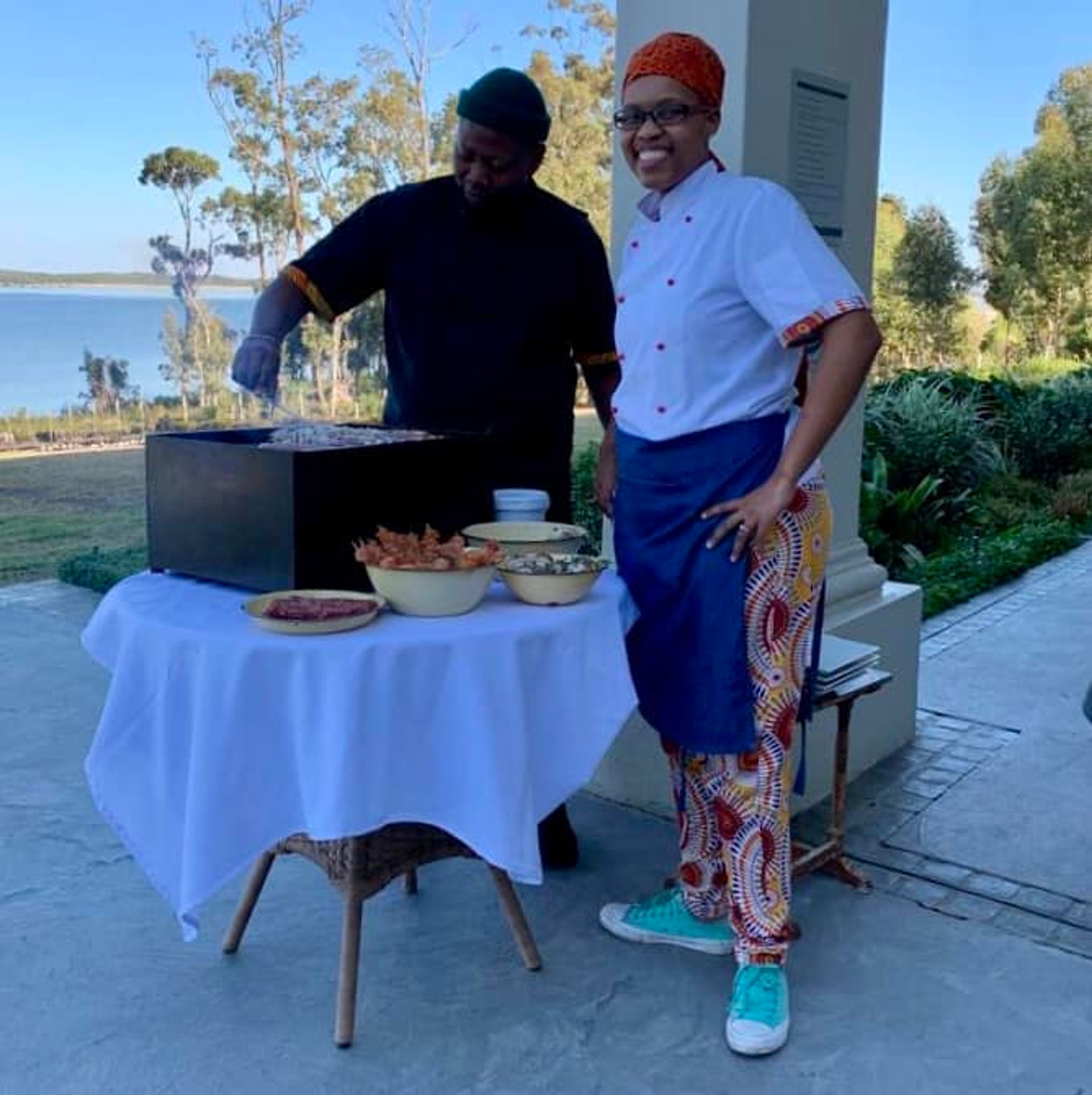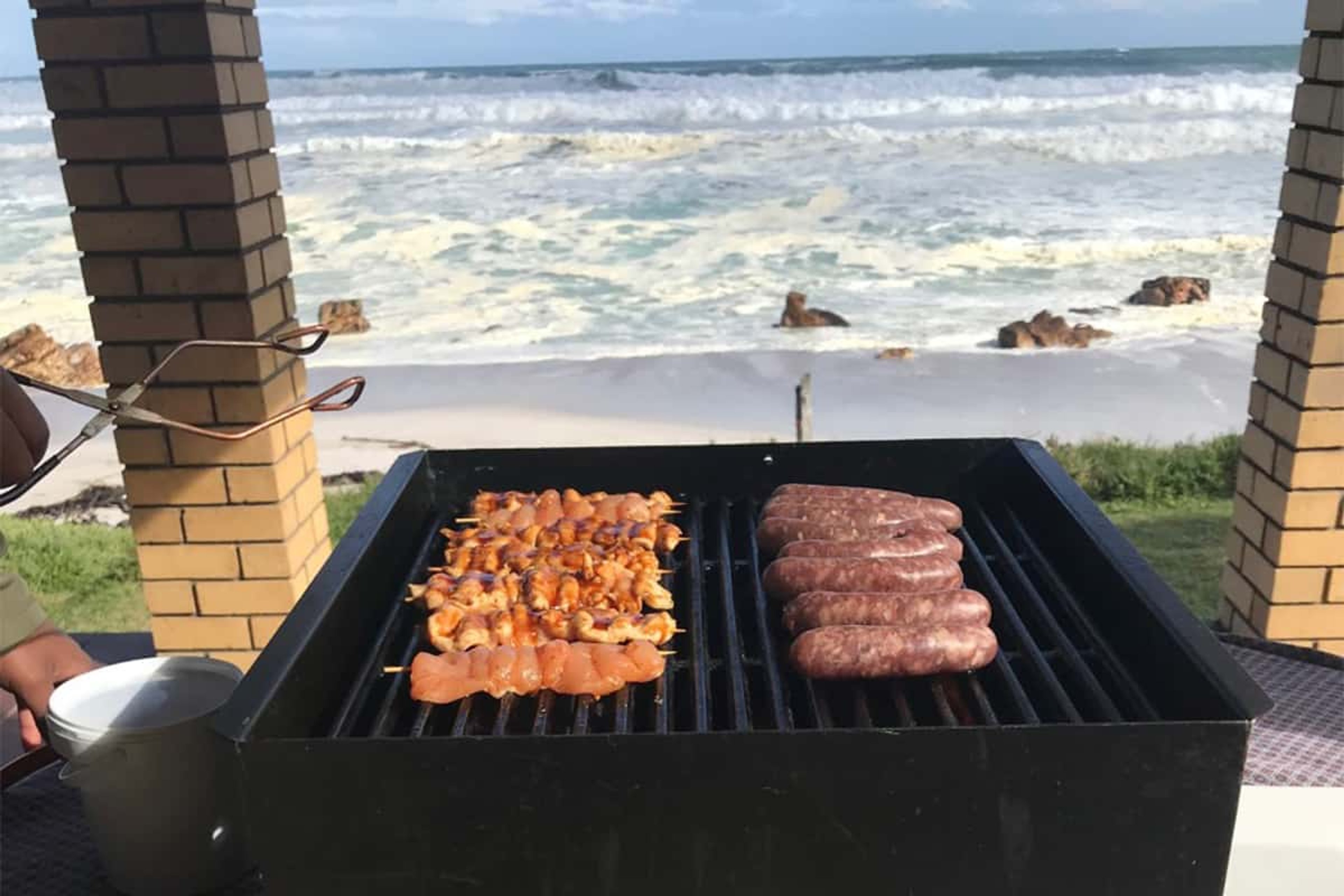Nolu’s concept of food is born in the townships. ‘The concept and culture is about bringing people together, through nostalgia and the celebration of our heritage,’ explains Nolu. ‘We don’t necessarily have a Zulu or Xhosa phrase for it.’ Traditionally a plate consists of rice, meat or chicken with different kinds of vegetables and salad dishes but each and every person has their own interpretation with the goal to serve a colorful meal with variation. ‘As a result of our history, food for most black South Africans, like my mother, was about sustenance.’ So while Nolu’s mother would prepare a meat or chicken dish with turmeric rice, cream spinach, butternut, potato salad and pickled beetroot, her own plate today incorporates traditional staple food such as umfino (wild spinach/leafy green vegetables and herbs), umngqusho (mealie samp), chakalaka (spicy vegetable relish), grilled corn, pickled beetroot and something meaty from grill.
‘Before colonization people in the rural areas of South Africa had a very simple diet which consisted of various cereals, beans, wild fruit, fresh vegetables, root vegetables and fresh or fermented milk,’ explains Nolu. ‘Some parts of our country had the luxury of nuts and raw honey too, while the foraging of herbs and hunting was a common practice amongst South African tribes.’ Like many other aspects of traditional life, colonization, apartheid and urbanization influenced the food that Xhosa/Zulu and many other South Africans ate. To the extent that land deposition from apartheid saw fewer people able to produce their own food, this resulted in opting for cheaper products that the government of the time produced such as maize and canned food. ‘It’s staggering to think that in just one generation African cultures lost their culinary heritage. My mother who was born in 1962 grew up eating mostly maize and canned food while my grandmother who was born 26 years earlier, grew up on a largely plant-based diet because she was able to source, produce, and process her own food. Her food involved long, slow, boiling and simmering cooking methods and cooking on open fire. She only ate meat on special occasions like weddings and rituals.
Nolu’s story is heavily influenced by her rural upbringing. When she was three months old, her mother entrusted her into the care of her maternal grandmother in the countryside as she felt that the city where she worked was no place for a child to grow up. This remains a custom throughout Africa for those who have no choice but to travel to the cities in search of work. ‘It was an amazing childhood,’ recalls Nolu. ‘I remember being woken up at 5am and helping my gran to make a fire on which to cook and heat up our bath water. I’d milk the cows with my uncles and grandfather and then join the women at the river as they did the laundry. It was incredible in that I never realized that our community was poor because there was so many things that made us happy.’





